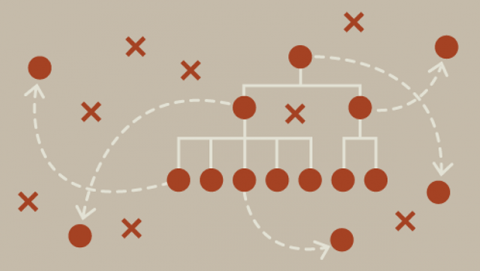This weekend, the New England Patriots take on the Los Angeles Rams in Super Bowl LIII. Through hard work, practice, and consistency (and a little ‘help’ from the refs), these two teams did what they needed to do to make it to one of the largest stages in the world.
You can draw many parallels between winning football teams and winning IT teams. Both have management teams that can’t win games alone: They need to recruit talented coaches and players, compile a strategic playbook, and execute on game day. Teams need to make in-game adjustments, learn from mistakes, and work together cohesively.
[ Do your words get under your team's skin? Read Management phrases that make people crazy. ]
As the Super Bowl kicks off on Sunday, consider the importance of your role as general manager and coach, and how you can build an elite, winning team.
1. Keep your eye on the prize
In football, your goal from the beginning of the season is to win the Super Bowl, hoist the Lombardi Trophy, and be recognized as the world champion. Despite the fact that 31 of 32 teams will come up short, it remains each organization’s goal. Patriots quarterback Tom Brady is just as hungry for victory today as he was 17 years ago when he won his first Super Bowl against the heavily-favored Rams.
IT is the same: You must always start off with a game plan and a goal in mind, and never lose track of that north star. What is yours? Digital transformation? ERP deployment? Establishing a brand-new culture? All of the above? You will certainly encounter setbacks (e.g. lack of funding, loss of talent, failed pilots) and you may occasionally waver off-track and lose sight of your goal (e.g. Scope creep, shiny object syndrome), but you must always come back to center and keep your eyes on the prize.
[ Draw inspiration from a legendary NFL coach: 15 Vince Lombardi quotes to inspire IT pros. ]
2. Execute your strategy
Punching your ticket to the Super Bowl is a non-linear journey with wins and losses. The top two teams get there one game at a time by using a balanced run and pass game. This might mean a four-yard, off-tackle run or a large post route pass play. Quarterbacks and coaches read the defense, and when there’s an opportunity for a game-changing “chunk” yardage play, they take it.
Technology is no different: You place some big bets, whether it’s a huge deployment, a rewrite of a major application, or a brand-new e-commerce platform. You balance those big plays with quick wins like process improvement, technical debt payoff, and sunsetting a legacy technology. You must have balance – or risk not meeting your organization’s needs.
Collectively, these big gains and little gains generate momentum (“touchdowns”) and earn you and your organization a reputation for a team that can deliver.
3. Excel in the fundamentals
There’s a reason we often use the term “blocking & tackling” in the business world when referring to fundamental work that must get done. In football, failing at these two fundamentals usually means you have no run game, no quarterback protection, and you’re stopping no one on defense. Translation: a long, and often painful, season.
In IT, those fundamentals are the investments you’ve made in your day-to-day operations: communication, corporate systems (e.g. e-mail), security, connectivity, customer service, project management, change management, etc. If your team isn’t taking care of these things every day, you likely won’t have time to strategize a big play. Because, like the quarterback with no blocking, you’ll be “running for your life” firefighting.







Comments
The commonality between IT and Football is well-articulated!